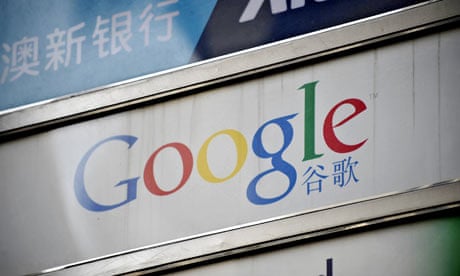The US government is investigating allegations of a Chinese hacking attack on Google amid what Washington called "serious concerns" over internet security.
The strike, which the company said was aimed at uncovering information linked to political dissidents in the country, led Google to announce last night that it would no longer censor its search engine in China.
The move could result in Google being forced to pull out of China four years after it controversially announced its intention to launch a censored version of google.cn, the local version of its search engine.
Faced with a conflict between one of America's most powerful companies and the Chinese government, the US secretary of state, Hillary Clinton, called on Beijing to discuss the situation.
"We have been briefed by Google on these allegations, which raise very serious concerns and questions," she said. "We look to the Chinese government for an explanation."
Clinton, who is about to begin a tour of Asia and the Pacific, said it was important for businesses and governments around the world to be able to operate online without interference.
"The ability to operate with confidence in cyberspace is critical in a modern society and economy," she said.
Barack Obama has called internet security a "national security priority".
Clinton is expected to give a speech in Washington next week outlining new policies aimed at curbing online crime.
The White House has just appointed a new head of cybersecurity, charged with improving the country's online defences, which have come under constant attack in recent years.
Hackers have attacked government computers in Washington, London, Berlin and elsewhere – in what some experts say is an orchestrated campaign that is sponsored, or at least permitted to take place, by officials in Beijing.
On a visit to Shanghai in November, Barack Obama said filtering information was not compatible with modern life.
"Unrestricted internet access is a source of strength and I think should be encouraged," he said.
Google's strongly worded statement – in which it said the conflict "goes to the heart of a much bigger global debate about freedom of speech" – may push the issue further.
Google's senior figures have close relations with US government officials. Its chief executive, Eric Schmidt, was an adviser for Obama's election campaign and last week he was among guests at a dinner with Clinton to discuss how technology could be used to promote democracy.
The state department said it had been briefed on Google's plans but Google's head of corporate communications, Matt Furman, told the Guardian that the state department had not had any direct involvement in Google's decision to drop its censored search results.
It would not be unprecedented for the US government to intervene. In June, officials in Washington contacted the internet messaging service Twitter asking it to push back planned maintenance so that news from the Iranian protests could spread.






